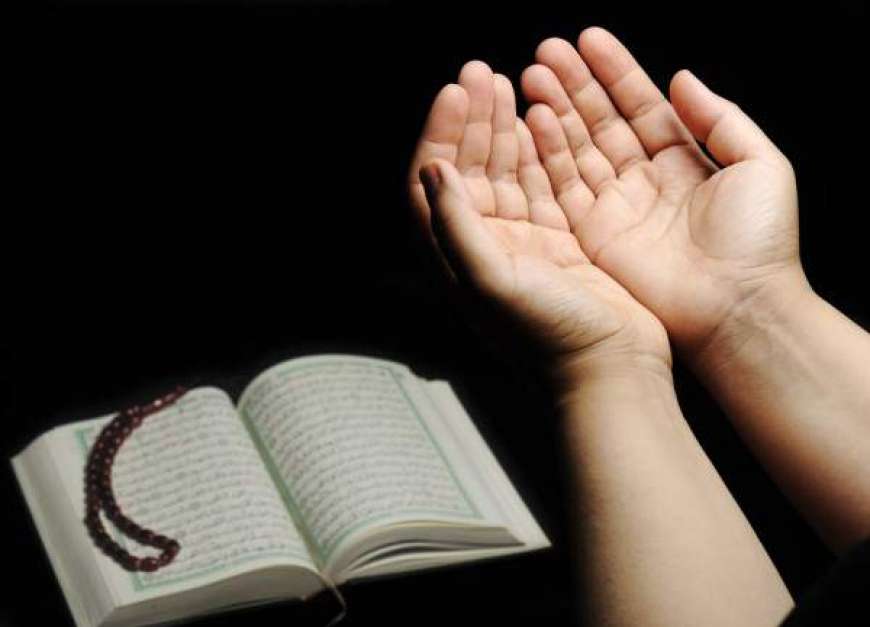
Yuk Simak Alastu Birobbikum Qolu Bala Syahidna [Terbaru] Catatan Makara
Sura 7, verse 172—i.e., God's address to the uncreated children of Adam ("Am I not your Lord" [alastu birabbikum])—came to denote the pre-eternal love relation between God and humanity. As for the prophets before Muhammad, the vision of Moses was considered still imperfect, for the mystic wants the actual vision of God, not his.

Alastu BiRabbikum Waada Wafai Ki Toh Hum Ne Ki Irfani kalam Use Ear phones 🎧 For Best
Surat Al-A'raaf 7 : 172 | Al-Islam.org When your Lord took from the Children of Adam, from their loins, their descendants and made them bear witness over themselves, [He said to them,] 'Am I not your Lord?' They said, 'Yes indeed!.

Wisdom Poetry 002 Alastu birabbikum YouTube
Dr. Shabir Ally: In classical books, yeah. This is commonly presented like this. The soul pre-existed and God gathered all of the souls in the land of the souls. And then, eventually put them in human bodies, as we have now. And it is even said in the hadith that when the embryo develops to a certain extent—some interpretation of the hadith.

alastu bi rabbikum ? in quran 7171, According to 📚Quran and Hadith TeluguBukhari YouTube
And (remember) when thy Lord brought forth from the Children of Adam, from their reins, their seed, and made them testify of themselves, (saying): Am I not your Lord? They said: Yea, verily. We testify. (That was) lest ye should say at the Day of Resurrection: Lo! of this we were unaware; Sahih Intl. And [mention] when your Lord took from the.

SURAH AARAF AYAH 172 SPECIAL LECTURE ON ALASTU BIRABBIKUM PART A YouTube
Wa idh aakhadha rabbuka min banee aadama min zhuhoorihim dhurriyyatahum wa ashhadahum `alaa anfusihim alastu birabbikum qaaloo balaa shahidnaa an taqooloo yawma 'l-qiyamati innaa kunna `an haadha ghaafileen.. Alastu bi-rabbikum, "Am I am not your Lord?" If you are not understanding, then how are we saying, "Balaa! Indeed You are our Lord!"

Alastu Bi Rabbikum Hazrat Junaid Baghdadi's Interpretation PDF
7 :172 And [mention] when your Lord took from the children of Adam - from their loins - their descendants and made them testify of themselves, [saying to them], "Am I not your Lord?" They said, "Yes, we have testified." [This] - lest you should say on the day of Resurrection, "Indeed, we were of this unaware." Tafsir Ibn Katheer in English.

Alastu Bi Robbikum Nordin Jaafar (Official Music Video)
Meaning of alastu-birabbikum in English | Rekhta Dictionary alastu-birabbikum अलस्तु-बिरब्बिकुम • اَلَسْتُ بِرَبِّکُم English meaning of alastu-birabbikum Hide am I not your God? (the question Allah asked of His creatures on the First Day) Sher Examples farmāyā tū ne jabki alastu-birabbikum juz zāt-e-pāk koī vahāñ aur yahāñ na thā

Alastu Birabbikum Ayat Seberkas Ayat
- Alastu birabbikum= Am I not your Lord? The spirits answered: - Qalu:Bala=They said:Yes you are. They also said, "Thee do we worship, and Thine aid we seek." The time when the conversation above took place is called Qalu Bala.

The First Remembrance Alastu BiRabbikum YouTube
Answer: Assalamu alaikum wa rahmatullahi wa barakatuh, I pray that you are well, insha'Allah. The day of "Am I not your Lord?" (Alastu bi Rabbikum) is the day when all of the children of our father Adam were made to acknowledge the oneness of their Lord and Creator. This is the day mentioned in the words of Allah Most High, "When thy.

Ayat Qur'an Pilihan Al A'raf 7 172 Perjanjian Alam Alastu YouTube
Arabic وَإِذۡ أَخَذَ رَبُّكَ مِنۢ بَنِیۤ ءَادَمَ مِن ظُهُورِهِمۡ ذُرِّیَّتَهُمۡ وَأَشۡهَدَهُمۡ عَلَىٰۤ أَنفُسِهِمۡ أَلَسۡتُ بِرَبِّكُمۡۖ قَالُوا۟ بَلَىٰ شَهِدۡنَاۤۚ أَن تَقُولُوا۟ یَوۡمَ ٱلۡقِیَـٰمَةِ إِنَّا كُنَّا عَنۡ هَـٰذَا غَـٰفِلِینَ ١٧٢ Transliteration (2021)

Roohon Ki 4 Qismen Khwaja Usman Harooni Ka Waqia Alastu Bi Rabbikum By Shahbaz Qadri YouTube
We do testify!" [Alastu birabbikum, qaloo bala shahidna] It was when the soul (ruh) was created that the light of Allah's (Exalted and Majestic) words was reflected in it. That is the perfect and the natural entity within us, which is described as the soul (the ruh). This perfect entity, the soul (the ruh) is the testimony to ourselves as.

17.ALASTU BI RABBIKUM (ABDUL AHAD ZARGER) YouTube
Latin: Alastu birabbikum qaaluu balaa syahidnaa Artinya: "Bukankah Aku ini Tuhanmu?" Mereka menjawab, "Betul (Engkau Tuhan kami), kami bersaksi." Baca Juga: La ilaha illa anta subhanaka inni kuntu minadzolimin arab dan Artinya, Surat Al Anbiya ayat 87 Doa Nabi Yunus

Alastu Birabbikum Ayat Seberkas Ayat
Abul Ala Maududi And recall (O Prophet) when your Lord brought forth descendants from the loins of the sons of Adam, and made them witnesses against their ownselves. asking them: 'Am I not your Lord?' They said: 'Yes, we do testify.' We did so lest you claim on the Day of Resurrection: 'We were unaware of this.' Muhsin Khan

RENEWAL OF THE COVENANT Alastu bi Rabbikum YouTube
The Doctrine of al-Mithaq or the Day of Alastu is a doctrine which preludes a covenant between God and man from pre-existence when man are in their forms of souls.. doctrine is based on the verse "wa idh akhadha rabbuka min bani adama min dhuhurihim wa ashhadahum 'ala anfusihim alastu birabbikum qalu bala shahidna" (al-A'raf (7):172.

Alastu Birabbikum Qaaluu Balaa Syahidnaa Artinya Diangpedia
Alastu birabbikum Am I not your Lord? (Alastu bi Rabbikum?) (The Qur'an 7:171). These words were spoken in Pre-Eternity when Allah addressed the as yet 'non-existent' sons of Adam. This Primordial Covenant is called by the Sufis 'The Day of Alast'. See also: Affliction Covenant Preparedness Affliction ( bala ) Link To Word (Bala).

Alastu Birabbikum, Kya Mein Tumhara Rab Nahi Hon Adab E Zindagi Islamic Article in Urdu
Al-A'raf Verse 172 | 7:172 - Quran O [7] Al-A'raf : 172 الأعراف The Heights Al-A'raf Verse 172 وَاِذْ اَخَذَ رَبُّكَ مِنْۢ بَنِيْٓ اٰدَمَ مِنْ ظُهُوْرِهِمْ ذُرِّيَّتَهُمْ وَاَشْهَدَهُمْ عَلٰٓى اَنْفُسِهِمْۚ اَلَسْتُ بِرَبِّكُمْۗ قَالُوْا بَلٰىۛ شَهِدْنَا ۛاَنْ تَقُوْلُوْا يَوْمَ الْقِيٰمَةِ اِنَّا كُنَّا عَنْ هٰذَا غٰفِلِيْنَۙ ( الأعراف: ١٧٢ )